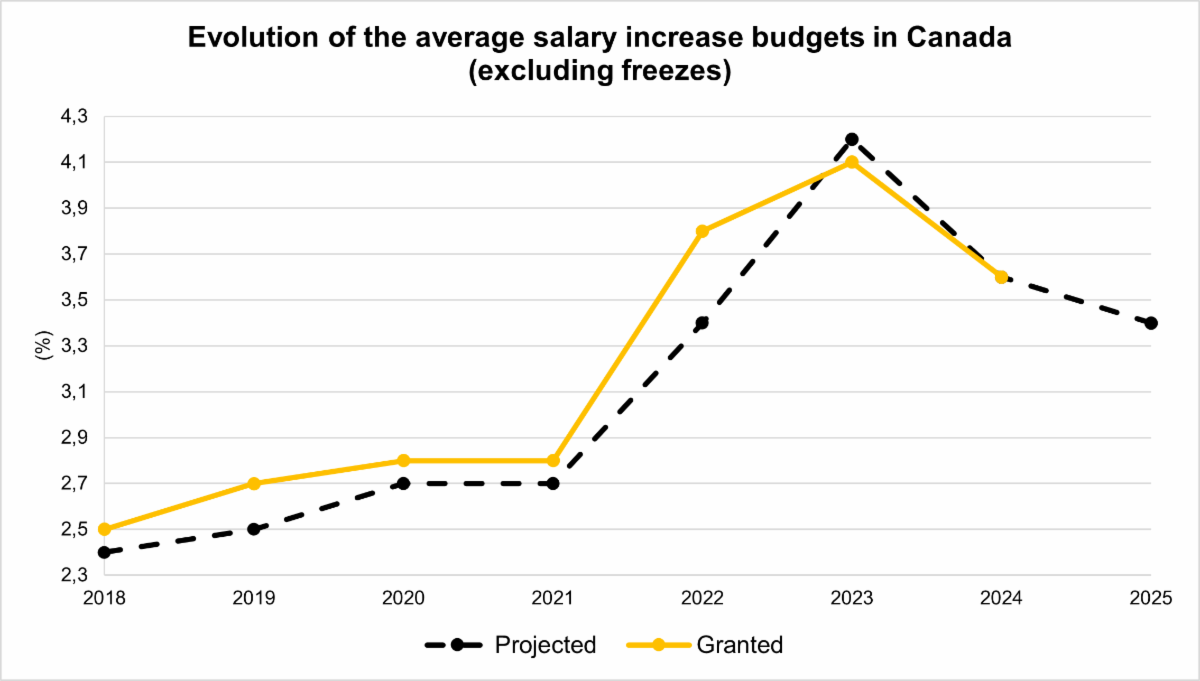Employers adjust salary strategies as economic pressures ease: report

Canadian employers are expected to lower their overall salary increase budgets in 2025, according to the 14th annual Salary Increase Survey conducted by Normandin Beaudry.
The survey, which gathered data from more than 750 organizations across the country, revealed that average salary increases are projected to be 3.4 per cent, down slightly from 2024’s 3.6 per cent.
“While economic pressures and the competition for talent remain challenging, we’re beginning to see a gradual return to pre-pandemic market norms as salary increase budgets reduce for a second year in a row,” said Darcy Clark, senior principal of compensation at Normandin Beaudry.
Organizations still allocate additional salary budgets
Despite the overall reduction in salary budgets, many organizations are still carving out additional funds to handle compensation pressures, the report revealed.
In 2024, nearly half of the surveyed organizations allocated an average of 1.0 per cent beyond their general salary increase budget, slightly higher than the 0.9 per cent initially forecasted. Looking ahead to 2025, 44 per cent of respondents plan to allocate a similar additional budget of 1.0 per cent.

Source: Normandin Beaudry
These extra budgets are being used to address various compensation issues.
According to the survey, 65 per cent of employers plan to use the funds to support market adjustments to salaries, while 51 per cent will use them to retain employees in critical roles.
Other strategies include:
- differentiating compensation for top performers (49 per cent)
- retaining employees at risk of leaving (40 per cent)
- addressing internal equity issues (37 per cent)
- accelerating salary progression for those lower in their pay range (38 per cent)
- providing off-cycle salary increases (25 per cent).
Industries expecting above-average salary increases
Certain sectors are forecasting salary increases well above the national average. The high-tech sector leads with an expected increase of 4.3 per cent, followed by telecommunications and related services at 3.9 per cent.
Other industries with higher-than-average increases include professional, scientific, and technical services (3.7 per cent), construction (3.6 per cent), and IT services (3.6 per cent). Energy, mining, and health care sectors are also planning salary increases of around 3.5 per cent.
“While average salary increase projections remain above 3 per cent, organizations are considering affordability when defining their long-term plans,” Clark noted. He added that several large salary increase cycles may not be sustainable, and businesses are taking a more cautious approach to recurring payroll costs.




